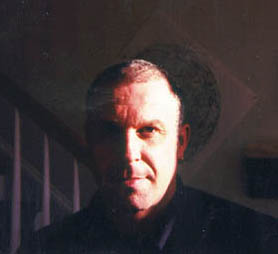What’s It All About, Alfie? Bye Bye Buchwald

by
Justice Putnam
__________________________________
I think of a song lyric, "What's it all about, Alfie?" I don't know how well I've done while I was here, but I'd like to think some of my printed works will persevere -- at least for three years.
I know it's very egocentric to believe that someone is put on earth for a reason.
In my case, I like to think I was. And after this column appears in the paper following my passing, I would like to think it will either wind up on a cereal box top or be repeated every Thanksgiving Day.
So, "What's it all about, Alfie?" is my way of saying goodbye.
-- Art Buchwald
“Goodbye, My Friends”
___________________________________
Goodbye, Art Buchwald and thanks for the laughs. Not only for the ones you gave me, but also for teaching me how to make others laugh; just like you.
Goodbye.
I have never laughed so sadly as I did at some of your stories. Some of your other stories made me laugh in howls. But all of them made me think. The first time I finally understood Satire was in relation to your work. I finally understood a power that could change minds without violence. I was eleven years old. The year was 1966.
That was the year the first cross was burned on our front lawn. We were always active as a family in the civil rights movement. My father was a history professor and my mom had been a jazz singer with some regional fame in the Northwest briefly. They were and remain free thinkers and we were raised the same. We moved from Oregon to the San Gabriel Valley of Southern California in the summer of 1965, a few weeks before racial tensions exploded finally on the West Coast with the Watts Riots.
We stayed at my great-aunt's place in West Covina that summer of 1965. My dad had been teaching at Oregon State and was to begin what turned out to be a thirty-five year tenure at Cal State Fullerton. We moved to Rowland Heights before the school term began.
Shortly after the New Year, my parents found out there was no ACLU chapter in the San Gabriel Valley, but there was a chapter of the John Birch Society near Diamond Bar and also a Chapter of the West Coast version of the White Citizens Council in Hacienda Heights; there was only one thing to do.
The local papers covered the ribbon cutting and also conveniently publicized our address. That was when the fun began; death threats called to my dad's office at the university, bottles thrown at our house and the first of several cross burnings I mentioned earlier.
I knew what a cross burning meant. Not only had my parents started the first ACLU chapter in the San Gabriel Valley, but my parents also had many friends and colleagues, many of them black, asian, hispanic; and they all came to the many soirees my parents had.
Racial slurs were an every day occurrence in that neighborhood.
It was around that time that I was allowed to use my dad's library at home. His home library held almost 8,000 books. Many of them in his field, but he also used a lot of literature in his classes on history, so that was what I was looking at and that's how I found your work.
I pulled down one collection of stories and opened it randomly. Little Green People caught my attention. I've looked for the story recently so I could link it here, but I was unsuccessful. Anyway, Little Green People was the story that taught me that power I mentioned. I know you've written many stories in your life, so I'll remind you a bit about how you had been in a conversation with a spokesman from the NAALGP (the National Association for the Advancement of Little Green People) and the President of the White Citizens Councils. The NAALGP spokesman argued that it is irresponsible to use the Jolly Green Giant as evidence of advancements the aliens had attained, that the unskilled little green person was deemed just as equal in our society and needs to be helped to become skilled. The White Citizens Council President complained that they were just getting used to blacks moving into the neighborhood and now they have little green people being jammed down their throats.
You brought up some salient points and the White Citizens Council President asked how you'd like it if your sister dated a little green person and you demurred.
"You bleeding heart liberals are all alike!" The White Citizens Council President retorted.
Well, that story put me on a quest to read as much satire as I could and try my hand at it. As I got older and traveled more, I put your Paris writings next to Genet's on my shelves.
And now you're dead but you still have us laughing.
So, what's it all about, Alfie?
Au Revoir and Goodbye. Je ne suis quand Americain, but you taught me something about being a citizen of the world. You taught me that laughter has great power; that laughter can illuminate a wrong, change a mind and even seduce beautiful women.
You taught me that authority must always be questioned, no matter who it is; and these last months, you've taught us all how dignity is not bestowed, it is lived.
You lived so very, very well.
Goodbye, Art Buchwald. Goodbye.
© 2007 by Justice Putnam
and Mechanisches-Strophe Verlagswesen


